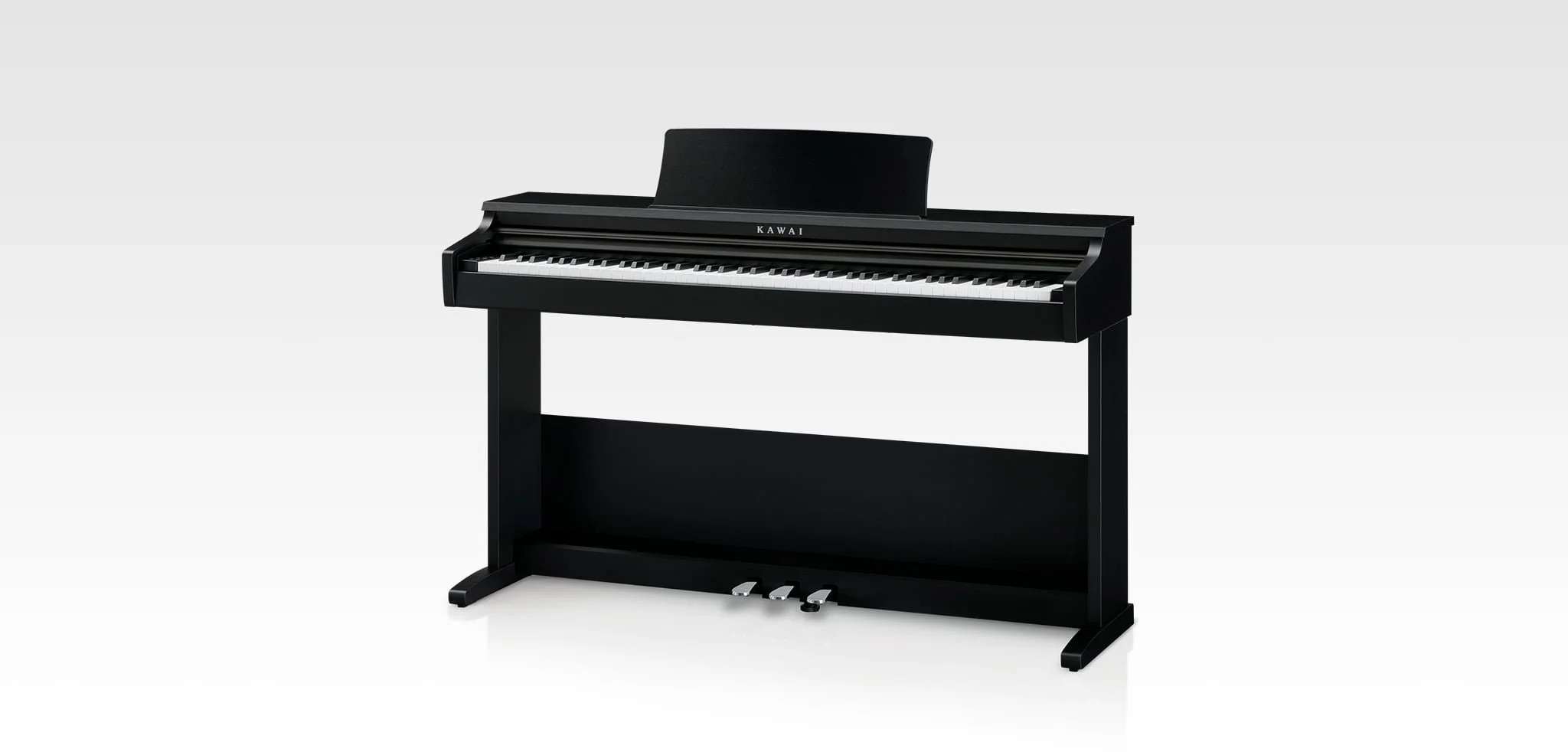🎹 Why every family room deserves a piano
Reading time: 6 minutes
Placing a piano in your family room can have real, measurable benefits.
At the Conservatoire de musique de la Montérégie, we often see it firsthand: families who welcome a piano into their home don’t just bring in music — they create a space for connection, creativity, and calm.
But did you know that placing a piano in your family room can have real, measurable benefits for your child’s mood, focus, and even academic performance?
Let’s take a look at what the science says — and why a piano might be one of the best investments you can make for your child’s well-being.
🎶 Music supports emotional well-being
Children who play music, even casually, show better emotional regulation and reduced anxiety. The simple act of playing the piano activates reward systems in the brain, including the release of dopamine (linked to pleasure) and serotonin (linked to calm and happiness).
👉 Bigger Better Brains (Collins, 2020) emphasizes that musical training strengthens brain areas involved in emotional control and memory.
👉 Neuroimaging studies (Zatorre et al., 2007) show that music activates the same brain systems as those triggered by positive social interactions and natural rewards.
When a piano is visible and part of the family’s daily environment, children are more likely to engage with it spontaneously — and experience these emotional benefits regularly.
📱 Less screen time, more real moments
Screens are everywhere, and it’s tempting for children to drift toward passive entertainment. But studies show that when creative alternatives like music are available, screen time naturally decreases.
👉 According to Common Sense Media (Rideout et al., 2022), children with access to musical activities at home spend up to 30% less time in front of screens.
👉 Having a piano in a shared space makes it an inviting, hands-on option, encouraging kids to create instead of consume.
Music becomes a screen-free activity that’s rewarding, enriching, and calming — no digital devices required.
🧠 Music boosts brain power
Research reveals that musicians retain cognitive advantages well into adulthood.
Piano playing activates nearly every part of the brain: auditory, visual, motor, executive function, and memory. Children who learn piano are often better at planning, focusing, and academic tasks.
👉 A meta-analysis by Sala & Gobet (2017) confirms that music instruction is associated with improved performance in reading, math, and general intelligence.
👉 Research shared by Bigger Better Brains shows how music training strengthens working memory and attention span, both key for school success.
👉 Longitudinal studies (Hanna-Pladdy & Mackay, 2011) reveal that musicians retain cognitive advantages well into adulthood.
With a piano in the living room, practice becomes a daily habit, not a chore — and that consistency leads to long-term benefits.
👨👩👧👦 Music brings families together
Beyond academics and brain science, there’s something deeply human about gathering around a piano. Whether it’s a child showing off a new song, a holiday singalong, or a simple improvised duet — music builds stronger emotional bonds.
👉 Studies in the Journal of Family Psychology (2013) found that families who share musical experiences show higher levels of emotional closeness and cooperation.
👉 Researcher Koelsch (2010) highlights the prosocial effects of music-making, including increased empathy, shared joy, and stronger family cohesion.
A piano in the family room becomes a hub for creativity, laughter, and connection — a place where music lives and love grows.
Ready to welcome a piano into your home?
Thanks to our new partnership with Piano Vertu, families can now access high-quality, affordable digital pianos — like the KAWAI ES60 and KDP75 — with expert advice and support.
Talk to your piano specialist at the Conservatoire to learn how to get started, and turn your living room into a space where music and happiness come together.
👉 Click here
📚 References:
Collins, A. (2020). Bigger Better Brains – www.biggerbetterbrains.com
Zatorre, R.J. et al. (2007). When the brain plays music: auditory–motor interactions in music perception and production, Nature Reviews Neuroscience.
Rideout, V. et al. (2022). The Common Sense Census: Media Use by Tweens and Teens, Common Sense Media.
Sala, G., & Gobet, F. (2017). Does music instruction improve children’s cognitive abilities? A meta-analysis, Educational Research Review.
Hanna-Pladdy, B., & Mackay, A. (2011). The relation between instrumental musical activity and cognitive aging, Neuropsychology.
Koelsch, S. (2010). Towards a neural basis of music-evoked emotions, Trends in Cognitive Sciences.
Journal of Family Psychology (2013). Music-making and family well-being: A relational perspective.



